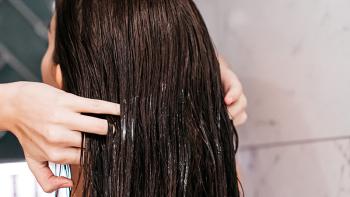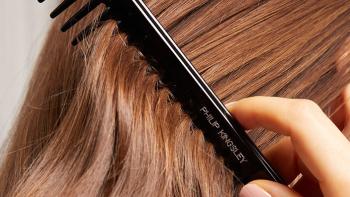CLINIC CONSULTATIONS
To find out more about how you can maximise your hair health and growth, come and see us at one of our Clinics where we will be delighted to welcome you.
Nutritious vegan and vegetarian diets — containing all essential vitamins, minerals, proteins and fats — are healthy, energising and fulfilling.
Balanced and varied vegan and vegetarian meals will help sustain healthy hair growth, while helping to prevent hair shedding and hair loss. Read on to discover how to make a vegetarian or vegan diet work best for your hair.
Proteins and Vegetarian / Vegan Diets
A vegetarian or vegan diet should endeavor to include a wide range of high-protein foods. This will help you acquire adequate proteins for hair cell renewal, as well as general nourishment.
Your body uses proteins to build tissue cells — including the cells of your hair, skin and nails. Eighty to eighty-five percent of your hair is composed of a protein called keratin. Amino acids which form dietary proteins are your hair’s building blocks — they make your hair strong and help keep it in its growing (anagen) phase.
However, because hair is considered non-essential tissue, its needs are not prioritised by your body. This means even the slightest deficit of protein in your diet is likely to show up first in your hair — usually in the form of excessive shedding, brittleness, and strands that will not grow past a certain length.
If you experience hair loss as a result of lack of protein, try not to worry — this is reversible, and relatively easy to correct with simple adjustments to your diet.
Good Plant-Based Sources of Protein
To make sure you ingest all the amino acids (building blocks of protein) your hair requires, you need to eat a variety of different plant proteins. Here are examples of the best plant-based sources of protein:
- Quinoa (which contains all essential amino acids)
- Seitan
- Tofu and soy products, such as edamame and tofu burgers
- Tempeh
- Beans
- Lentils
- Nuts
- Peanut butter
- Coconut
- Chickpeas
If you are a vegetarian and can tolerate lactose, it’s a good idea to take advantage of cheese and milk products for extra protein, plus Greek yoghurt which is a particularly good source. Eggs are also excellent sources of protein if your vegetarian diet allows them. In fact, eggs contain all essential amino acids (as do quinoa and whey) which is why we refer to them as 'perfect proteins'.
Plant-Based Sources of Iron
With only roughly 10% of the iron content of a plant being absorbed by the body (it is said to be less bio-available), you may want to consider taking an iron supplement if your levels are low. Plant-based foods that are rich in iron, include:
- Beets
- Dark leafy greens such as spinach, okra, kale and broccoli
- Watercress
- Dried fruits such as apricots, prunes and figs
- Prune juice
- Dark treacle or molasses
- Soybeans
- Pulses
- Almonds
- Cereals fortified with iron
Vitamin B12 and Vegetarian / Vegan Diets
Vitamin B12 is utilised by every cell in the body. It helps to keep your nervous system functioning normally and plays an important role in DNA production. It is also needed to form red blood cells. Crucially for your hair, Vitamin B12 helps your body metabolise amino acids (the building blocks of hair). It also helps keep your red blood cells healthy, allowing them to supply adequate oxygen to your tissues, including your hair follicles. Lack of Vitamin B12 (classified as Vitamin B12 deficiency anaemia) may cause increased hair shedding, plus also occasionally premature hair greying.
Sources of Vitamin B12
Vitamin B12 is not found in vegetable or plant sources, but it is present in milk and eggs, making these good options to try if your vegetarian diet allows. If you are a vegan, many good soy milks and cereals exist that are fortified with B12. You may also wish to take a supplement.
Vitamin B12 and Vegetarian / Vegan Diets
It can be difficult to eat a balanced diet all of the time. Nutritional supplements, in the form of tablets, capsules and liquids, can be useful boosters to any diet, including vegetarian and vegan ones.
At Philip Kingsley, the most common deficiencies our experts see in vegan and vegetarian diets are iron, protein, zinc and Vitamin B12. The best way to determine whether your diet is lacking in a certain nutrient, is to ask your GP to perform a blood test. Based on the results, you can then ask your doctor or Trichologist to suggest vegetarian or vegan supplements that will provide a beneficial boost to your hair (and body). Please be sure to consult with your doctor or nutritionist before making any changes to your diet.








